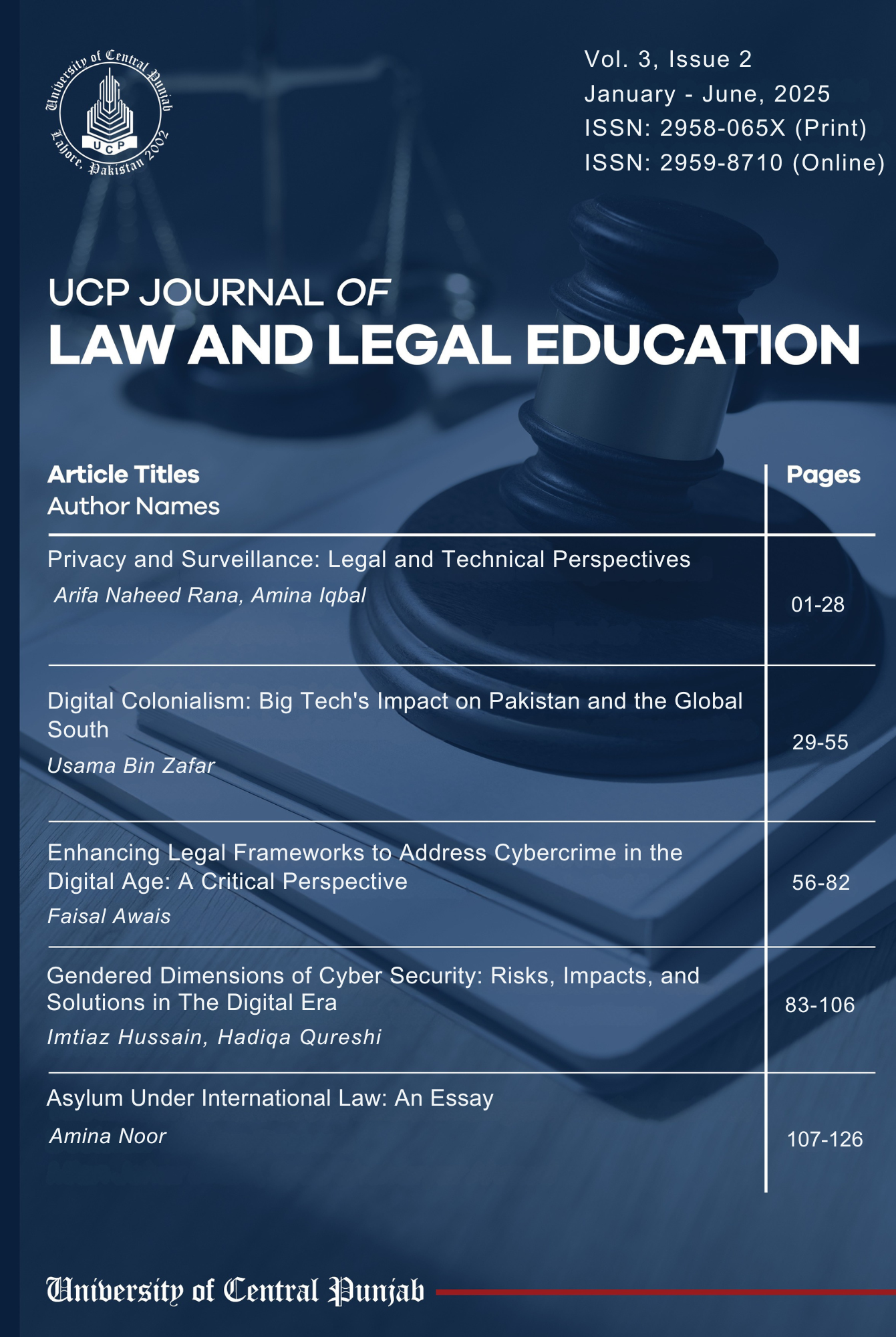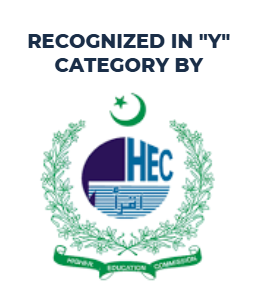Privacy and Surveillance: Legal and Technical Perspectives
DOI:
https://doi.org/10.24312/ucp-jlle.03.02.552Keywords:
Cybercrime, , Cybersecurity, , Privacy, Protection, , Surveillance,Abstract
Privacy and surveillance pose complex challenges at the intersection of law, technology, and human rights. In Pakistan, constitutional guarantees such as Article 14 safeguard individual dignity and privacy, yet existing statutes and institutional practices remain fragmented and fall short of international standards. This paper addresses this gap by conducting a doctrinal and comparative legal analysis of Pakistan’s surveillance framework, focusing on the Investigation for Fair Trial Act 2013, the Prevention of Electronic Crimes Act 2016, and related judicial precedents. Using necessity, proportionality, legality, oversight, and remedies as evaluative rubrics, the study finds that Pakistan’s current framework permits broad executive discretion, lacks adequate judicial oversight, and struggles to balance state security with civil liberties. The paper contributes by proposing structured reforms, including codified warrant procedures, independent oversight mechanisms, and a staged national AI and cybersecurity strategy to align Pakistan’s legal framework with global human rights standards.
Downloads
Published
Issue
Section
License
Copyright (c) 2025 UCP Journal of Law & Legal Education

This work is licensed under a Creative Commons Attribution 4.0 International License.




